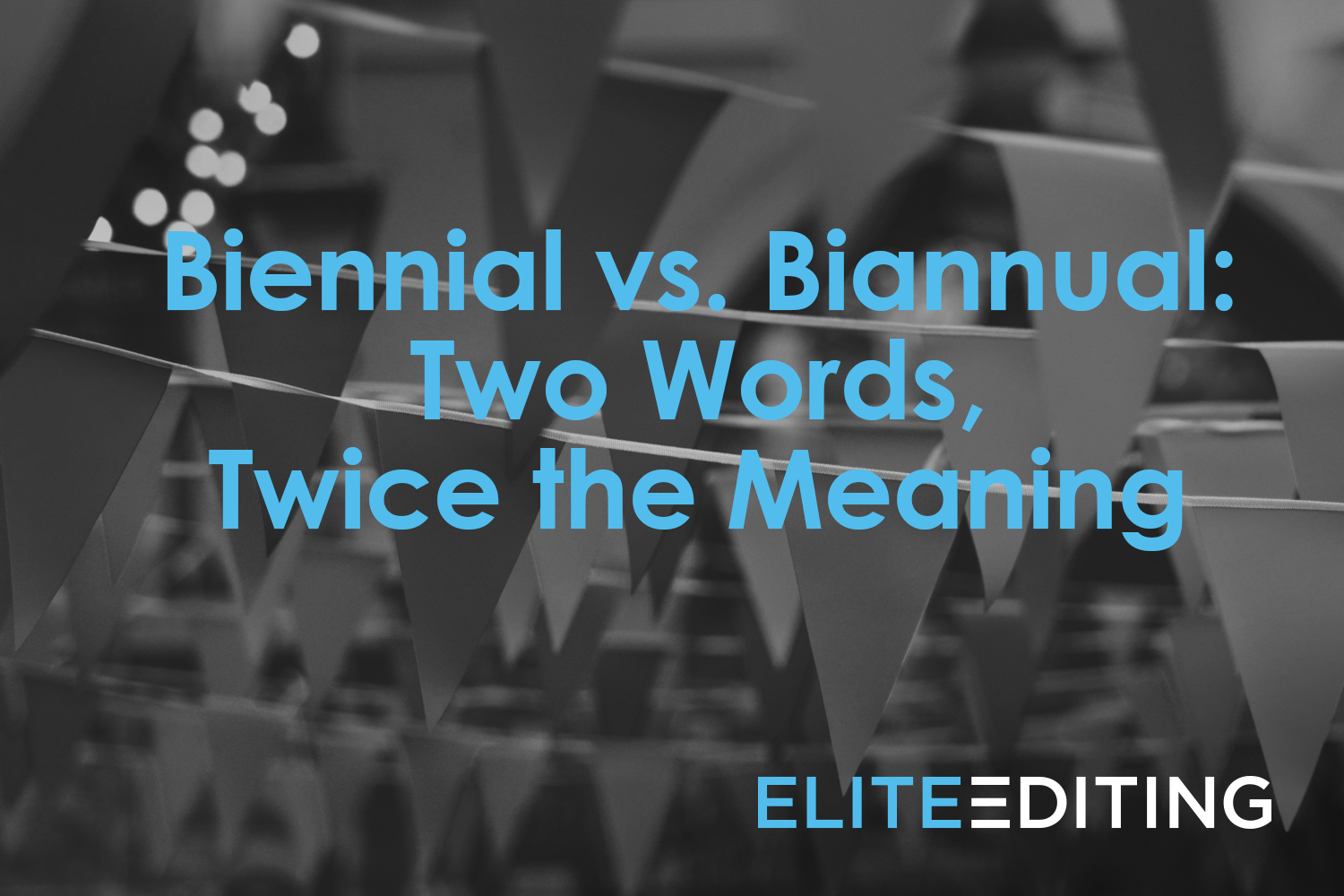
Biennially, I make sure to review the difference between biennial and biannual. Otherwise, I’ll get confused more than biannually! By the end of this post, you’ll be able to celebrate your clear knowledge of biennial vs. biannual with a party you’ll throw biennially. You can wear the snappy shoes you bought at your favorite store’s biannual sale. But first, which is which, and how often do biennial events and biannual events occur? Read on to find out.
Bi Have Been Meaning to Break This Down for You
To explain the difference, let’s break the words down into parts. The prefix bi- means “two.” Anni, enni, and annu come from the Latin word for “year.” When something is biannual, it happens twice in one year. When something is biennial, it happens once every two years. If you’re still confused, we’ll look at some illuminating examples.
After all, get the two mixed up, and you run the risk of booking something twice as often as you meant to. A mix-up like that can cost a pretty penny.
Know the Difference between Biennial vs. Biannual, and Save a Buck
Let’s say you want new flowers planted in your garden once every two years. You call Joe’s Landscaping Company in January and ask them to plant new flowers biannually. Joe plants the flowers, you pay him promptly, and he goes on his merry way.
Just one problem: biannually means twice in one year. You wanted biennial flowers, as these take two years to complete a life cycle, and you don’t have the budget to plant new ones yearly. That means you should have told Joe you wanted flowers planted biennially! Whoops.
You don’t realize your mistake until Joe knocks on your door six months later. He’s back with a truck full of pansies to plant in your beds for autumn and hands you a bill.
Now you’ve wasted your entire gardening budget, but hey, at least you got to support a local mom-and-pop gardener. Good for Joe, bad for you!
Learn Grammar from Plants and Parties
As we learned from our awkward mix-up with Joe the gardener, biennials are plants that take two years to grow. Make sure Joe knows you would like your biennials replaced biennially, or you’ll end up with a very thin wallet and a very dense garden.
If you belong to a social club that holds a biannual ball, on the other hand, you better line up your tuxedo rental for twice per year. Get the two mixed up, and you could miss out on a lot of fun parties.
What about Semiannual?
Some people replace bi- with semi- when they refer to something that happens twice in one year. There’s nothing wrong with this, as biannual and semiannual are synonyms—they mean the exact same thing. Just as lots of people mix up biennial vs. biannual, a lot of folks get confused with biannual and semiannual as well. For that reason, it’s usually helpful to add some context clues to make it clear to others exactly what you mean.
Examples:
- Our company will host the employee family picnic as a biennial event because we can only reserve the pavilion every other year.
- The linen sale is biannual, which is great because I like to replace my sheets twice a year.
- Our performance reviews at work are scheduled semiannually, but pay raises are only given on a biennial basis.
Now that you know the difference between biennial vs. biannual, you won’t think twice about how to use each one. With a little context, you’ll confidently schedule your teeth cleanings biannually and plant new flowerbeds biennially, instead of the other way around. While Joe the gardener may be disappointed, your dentist will be thrilled!
Resources:
http://www.writersdigest.com/editor-blogs/questions-and-quandaries/grammar/bi-annual-vs-biennial
https://www.merriam-webster.com/dictionary/bi
https://news.artnet.com/exhibitions/art-demystified-biennials-506903







